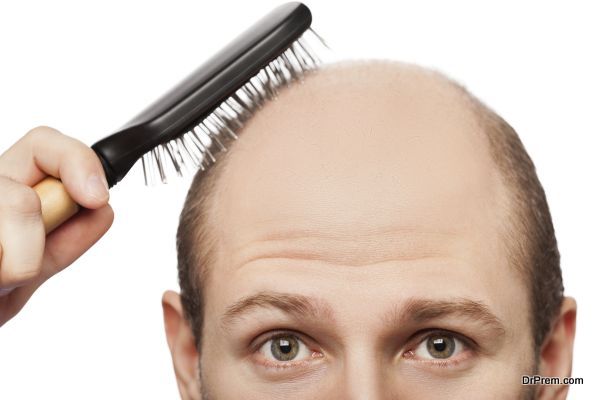Losing your locks can be a distressing feeling, so if your hair is thinning, you might be wondering what’s causing this problem. There are lots of myths surrounding hair loss and you might have heard that anything from using certain grooming products to brushing your tresses too much, or even reaching for your favourite hats could be to blame for your receding hair line. In reality though, the vast majority of cases of hair loss are genetic.
Male pattern baldness
Male pattern baldness is by far the most common form of hair loss and affects as many as half of all men by the time they get to 50 years of age. Lots of men start to exhibit the tell-tale signs of this condition – which includes a receding hair line and a thinning around the temples and crown – much before hitting the 50-year mark.
A hereditary problem, it can be passed down from either the mother or father’s side of the family and is believed to be caused by over-sensitive follicles that are linked to having excessive levels of some male hormones.
You might not be able to do much about your genes, but there are steps you can take to slow, stop or even reverse this balding process. The most effective treatment option now available is finasteride.
A prescription medicine that comes in tablet form, this can show impressive results when taken on a continuous basis. For more information on the treatment, you can speak to your doctor or visit specialist websites like Lloyds Pharmacy Online Doctor. Minoxidil is another option. This comes as a lotion that you should apply directly to the scalp. Like finasteride, you should use it continuously to get positive results.
Other possible causes
Although most cases of hair loss are genetic, there are other potential triggers. For example, if you are experiencing a general thinning of hair across your head, you might have a condition known as telogen effluvium. This is a type of alopecia triggered by intense emotional stress, hormonal changes, illnesses, certain medications, crash dieting or intense physical stress. The good news is, if you have telogen effluvium, your hair should stop falling out and start to regrow within a period of around six months.
Certain hairstyles can also increase the risk of hair loss. For example, tight cornrows or plaits can cause hair to fall out. If you think your chosen style is putting too much strain on your tresses, now’s the time to rethink your look. So, what you need to do is click site, put your shoes on, go to your nearest barber, and have a haircut that would eventually reduce your chances of hair loss.
By making sure you understand the cause of your thinning hair, you should find it easier to access suitable treatments.
Article Submitted By Community Writer




